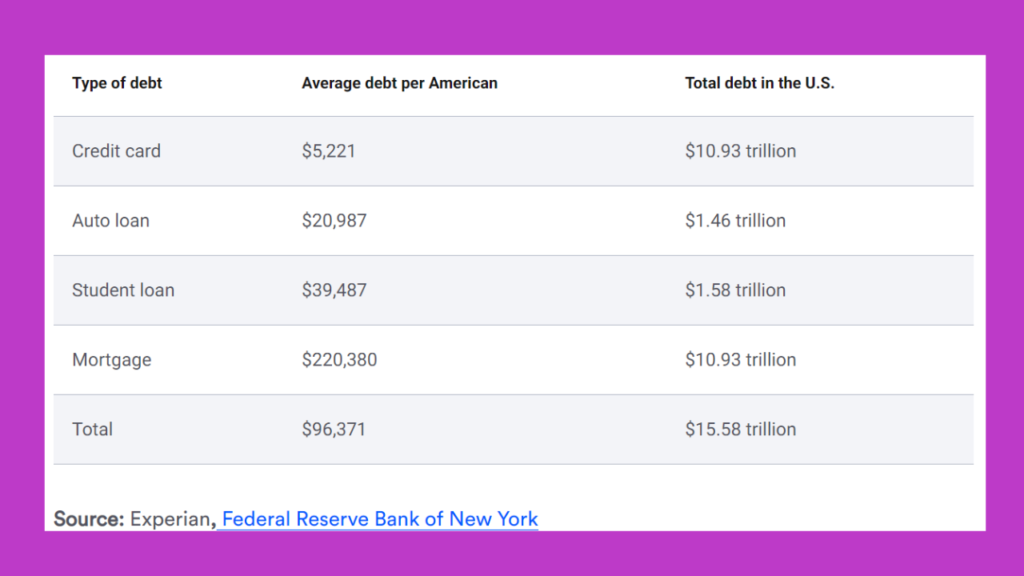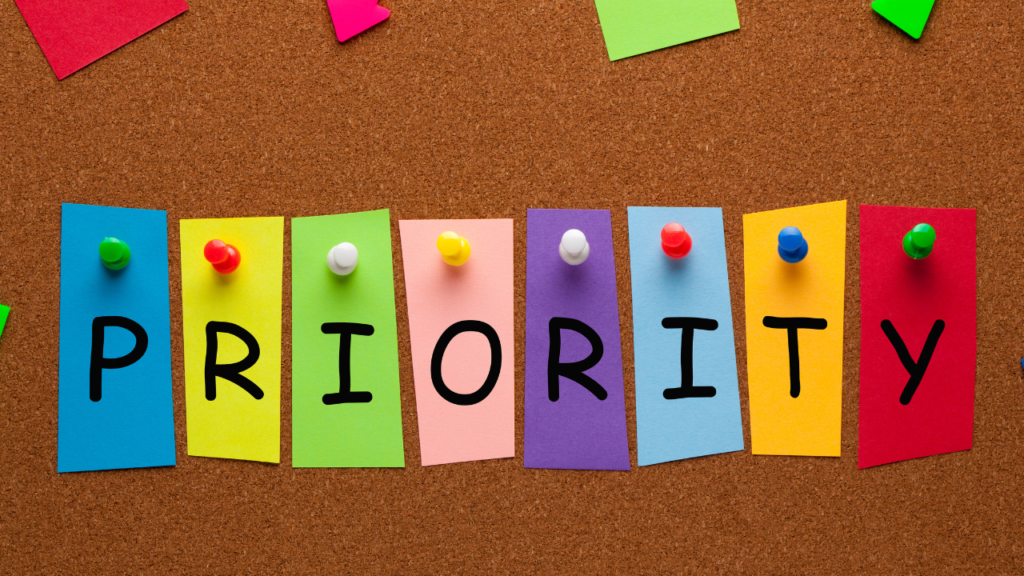Let’s talk about debt!
Do you ever feel hopeless when thinking about the amount of money you owe? According to statistics, the average overall debt per person in the US is $96k and grand total of all debt categories is $16 trillion.
Studies also show that 16% of suicides are related to debt. When someone feels hopeless about their debt, and don’t know how to deal with it, they can decide to take their life. I’m not glorifying debt. I shared these statistics because I want you to know you’re not alone and that there are options.

Some people say they don’t want to know how much debt they have. And I understand that. When you are navigating job loss, a death in the family, health issues and much more, the last thing on your mind is managing your debt. However, If you don’t know or want to know how much you owe, there can be ramifications beyond you not wanting to know.
One thing to consider is hiring a professional who may help you see through the haze of all that’s going on in your life. A professional will help separate the emotions from the numbers to provide a way forward.
What are the some practical things you should do when you feel that your debt is overwhelming?
- Don’t ignore your debt!
Contact your creditors. Use the fact that you’ve been a loyal customer and negotiate. You can negotiate new payment structures, lower interest rates, debt settlements, debt consolidation, debt transfer, ask to add payments to the back of your loan, and more. When negotiating with your creditor don’t just go there and say “hey, I need help with my debt”. Instead present some possible solutions. In essence, show your creditors that you are vested in paying your debt.
If you ignore your debt, you might end up with a court-mandated payment because you did not show up in court. The judge will likely grant whatever payment amount the creditor requests and you will find your wages being garnished. As of now, there are only four states that won’t garnish your wages for consumer debt. Those states are North Carolina, South Carolina, Pennsylvania, and Texas. But all other states will likely garnish your wages if you don’t show up in court.
However, if you show up in court, you can present the details of your financial situation and make a case to the judge for how much you can afford to pay.
- Hire a professional – Find money in your budget
Hiring personal finance professionals can lead to you finding money in your budget. They can help you figure out how to manage your debt and even eliminate your debt. Personal finance professionals are trained to look at your finances without emotion and help you identify areas that can be trimmed. They may also have access to organizations that can provide resources to help with your debt.

- Prioritize debt payment
You want to make sure that you are paying your housing, utilities, transportation, and any court-ordered debt. Because you need somewhere to live, you need to get to work, and of course utilities, because you can’t live without water, heat or light.
Creditors will make you feel like you have to make their debt a priority by creating a sense of urgency. For example, with credit card debt, what will they do? Will they come take the dress you bought or the meal that you ate? So, definitely give credit card and similar debt less priority. If you have limited
resources, make sure housing, utilities, transportation, and any court ordered debt comes first.
- Verify the legitimacy of the debt and the debt collector
If a debt collector contacts you get their information because not all debt
collectors are authorized to collect debt in all states. Get the name of their company, their name, and their address. Be sure to verify the amount, and account number, then if you think the debt belongs to you, you can try to settle with the collector by negotiating a payment plan or pay in full.
You have the right to tell them not to contact you at a certain number or phone even though you owe the money. There are also instances when companies make mistakes, whether it’s intentional or unintentional, so you want to keep track of that. If it is not yours, send them a letter saying this debt
doesn’t belong to you and show them why.
You have to be very careful because data conflation can lead to your data being comingled with someone else’s. Because you ignored the correspondence, creditors can take you to court over a debt that is not yours. And since you didn’t show up in court, they end up getting a judgement and you end up owing for a debt that’s not yours, making a bad situation even worse.

In summary, know that if you ever feel hopeless about your debt, you have options and you are not alone. Don’t ignore your debt, pay your debt in order of priority, hire a professional, and ensure the debt really belongs to you. A personal finance educator, a finance counselor, a financial coach, or a financial planner is ready and able to provide help so you can manage your debt, eliminate your debt, and most importantly; have peace of mind.



